Turkish Eggs (Cilbir)
This recipe may contain Amazon or other affiliate links. As an Amazon Associate I earn from qualifying purchases.
These Turkish Eggs, also called Cilbir or Çılbır, are the best high-protein, low-carb breakfast ever packed with 25 grams of protein. It’s an ultra-creamy garlic yogurt topped with warm poached eggs and spicy Aleppo butter.
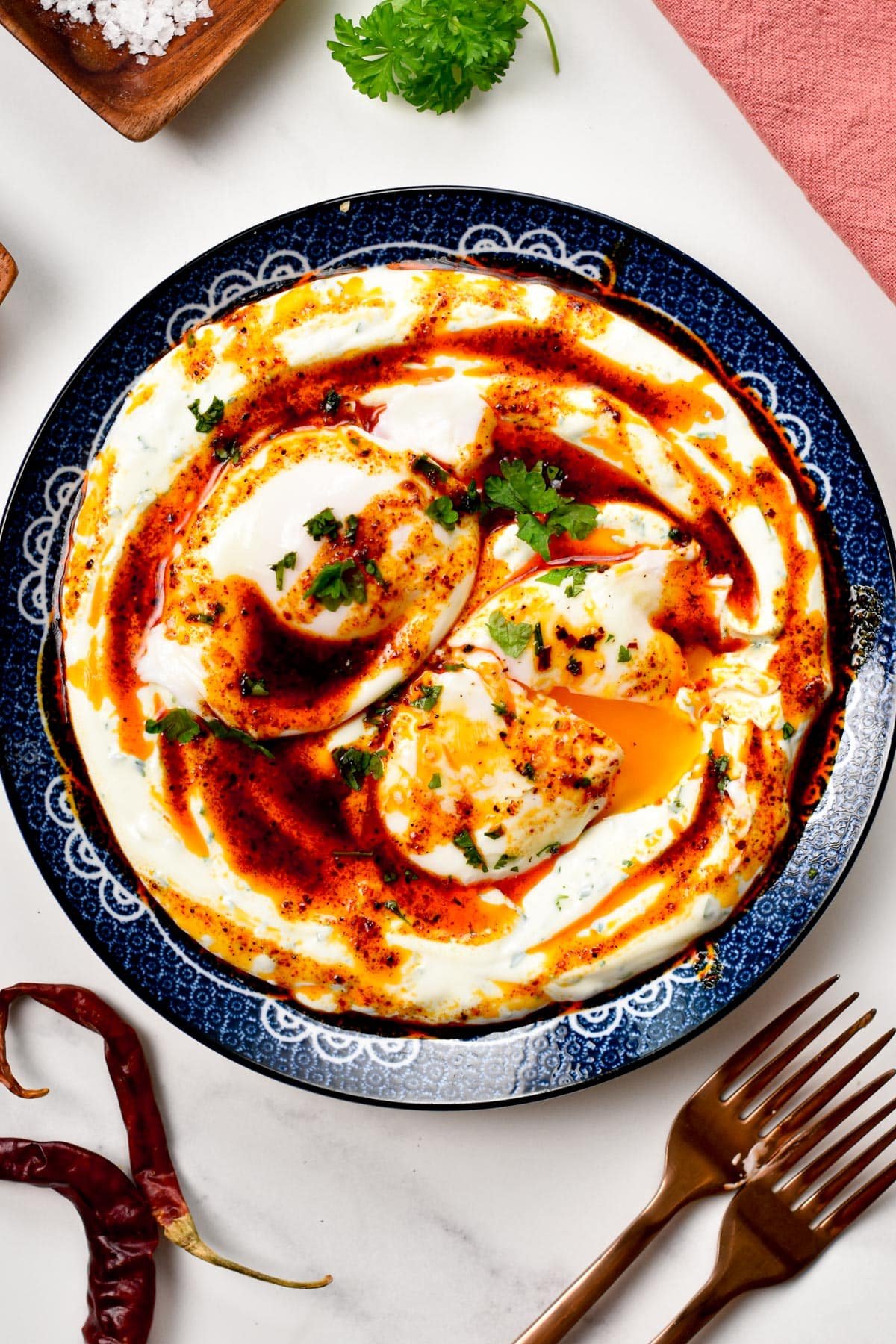
If you’ve never had Turkish eggs for breakfast, you are missing something! This is the most flavorsome, protein-packed, and low-carb breakfast ever. I make this all the time on the weekend, and this is so comforting and fulfilling.
Turkish eggs are a classic Middle Eastern breakfast made with fresh, creamy Greek yogurt flavored with garlic and herbs. It’s topped with warm poached eggs, and spicy olive oil butter drizzle called Aleppo butter as it’s flavored with Aleppo pepper, a variety of spices.
Ingredients and Substitutions
This Cilbir recipe is made in three steps. You first need to prepare the yogurt base, for which you need the following ingredients:
- Plain Greek Yogurt – Full-fat yogurt provides the best creamy texture.
- Fresh Garlic – Or garlic powder.
- Lemon Juice – Fresh or bottled.
- Salt and Pepper – to taste.
- Fresh Parsley – Or cilantro if you prefer.
For the poached eggs, you need:
- Large Fresh Eggs – I use free-range eggs.
- Pinch of Salt – to taste.
- Boiling Water – To cook the eggs.
For the Aleppo butter, you need:
- Butter – I like to use grass-fed butter.
- Olive Oil – I use extra-virgin olive oil.
- Aleppo Pepper – That’s the magic ingredient that provides the best light spicy flavor to the butter and vibrant red colors.
- Paprika and Cumin – for perfect flavors.
How To Make Turkish Eggs
It’s super easy to make this Turkish breakfast as soon as you follow the few steps below. This Turkish breakfast is pretty simple to make, especially if you know how to make poached eggs. That’s probably the only technical cooking step in this recipe, apart from that, the recipe is pretty simple.
Since it’s a three-step recipe, I prefer to make Cilbir on the weekend when I don’t have the pressure of serving a quick breakfast.
- First, prepare garlic yogurt by stirring Greek yogurt, lemon juice, salt, pepper, fresh garlic, and freshly chopped parsley in a bowl.
- Spread the yogurt evenly into two small plates or shallow bowls.
- I use the back of a tablespoon to create a nice swirl on top of the yogurt.
- Place the plates in the fridge while you poach eggs.
- Poaching eggs is the tricky part of this breakfast. Sometimes it can be overwhelming to poach eggs, so let me guide you through this easily. First, fill a large pot with water and a pinch of salt. Bring the water to a boil.
- Meanwhile, place a towel onto a plate or chopping board. This is where you will rest the cooked poached eggs before serving.
- While the water is boiling, crack each egg one at a time above a small sieve placed above the sink. Some of the egg white will go through the sieve, and that’s ok. Let it go into the sink. This is the unattached part of the egg whites, and if you poach this part, the egg looks messy so it’s better to discard it.
- Pour the egg yolk and egg whites left in the sieve into a ramekin, or small bowl, as seen in the picture below.
- Repeat this step for each egg, keeping one egg per ramekin, not all in the same bowl.
- Reduce the heat to medium-low to keep a low boil in the pot. Use a fork to swirl the water and create a vortex and pour one egg.
- Cook the egg for 45 seconds before adding another egg to the pot. Cook each egg for 3 minutes or until the egg whites are set.
- Use a slotted spoon to remove the poached eggs from the pot and place them on the prepared towel to absorb excess water.
- Keep the eggs at room temperature while making the spicy butter.
- In a non-stick pan over medium heat, add the butter with olive oil, Aleppo pepper, paprika, and cumin.
- Melt the butter in the pan, stirring gently to combine with the other ingredients.
- Cook until warm and a vibrant red butter forms. It takes 1 to 2 minutes.
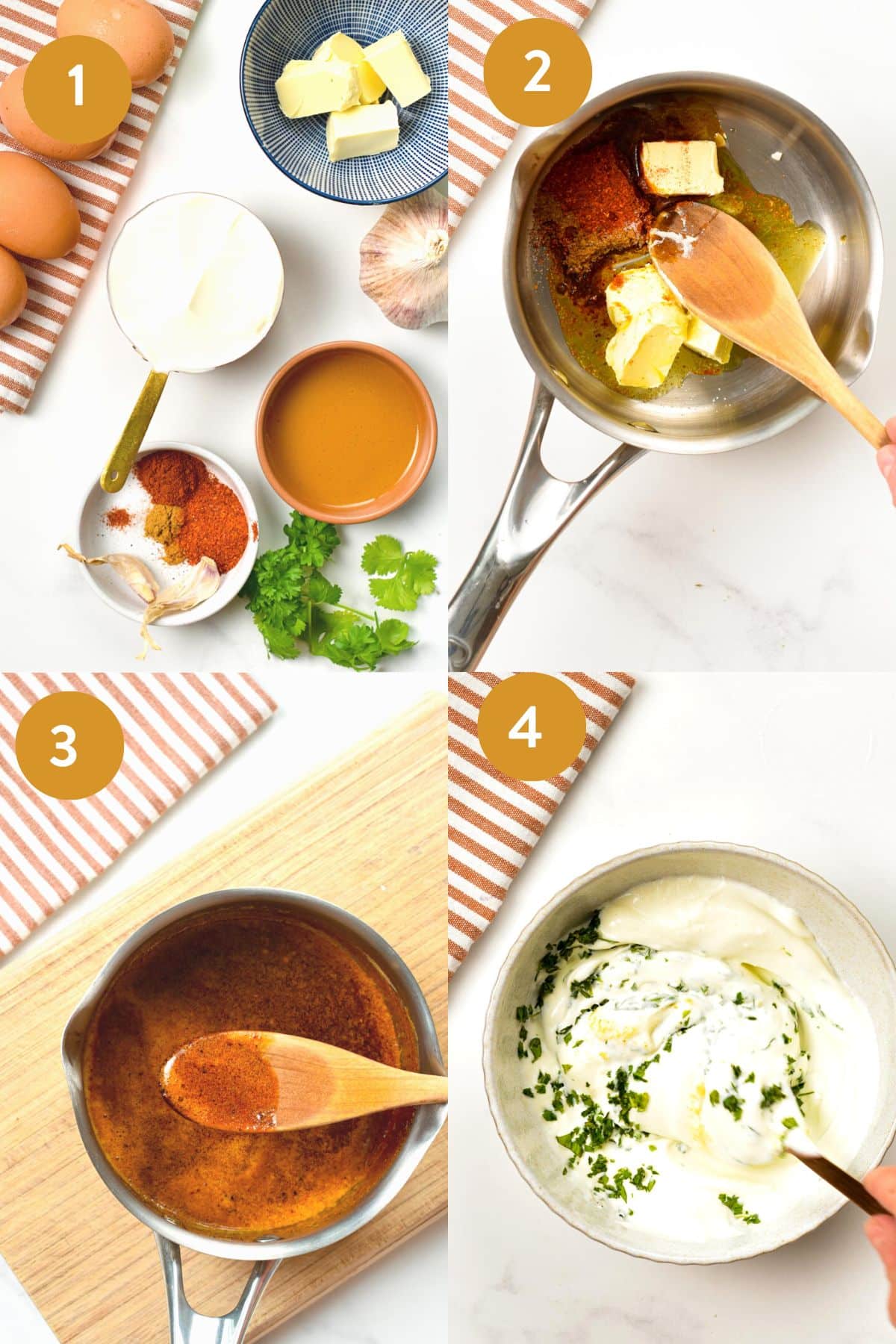
Serving Turkish Eggs
Take the plate filled with garlicky yogurt out of the fridge. Add two poached eggs on top of each plate filled with yogurt mixture and drizzle the warm Aleppo butter on top.
You can add some of the below ingredients for a boost of flavor on top of the eggs.
- Sesame seeds
- Red pepper flakes
- Ground black pepper
- Freshly chopped parsley
- Fresh dill

Sides For Poached Eggs
You can eat these creamy eggs and yogurt themself, but honestly, they taste way better with some bread. Pick some of the bread ideas below to dig in, some are low-carb, some are not, pick what’s right for you.
- Low-carb pita bread
- Homemade pita chips
- Almond crackers
- Almond flour bread
- Whole meal bread
- Moroccan bread
- Keto focaccia
- Crusty bread like baguette
- Greek Fries
Some vegetables go very well with yogurt and eggs like:
Allergy Swaps
If you are allergic to some of this recipe’s ingredients, you can try the following substitutions.
- Aleppo Pepper – If you can’t find this ingredient in your local store, you can use a pinch of chili flakes or French Espelette pepper.
- Dairy-Free – Pick high-protein or creamy dairy-free plain yogurt like coconut yogurt or soy yogurt. Then, swap the butter for dairy-free butter or more olive oil.
- Low-FODMAP – Don’t add garlic for a low-FODMAP option.
- Gluten-Free – Serve with gluten-free bread. The recipe itself is already gluten-free.
- Low-Carb – The recipe is low-carb. Pick the lowest carb yogurt to keep it to the lowest.
Frequently Asked Questions
Below I answered your most common questions about this Turkish recipe.
If you are not used to poaching eggs, you can alternatively make a sunny-side-up egg, even if this is not the authentic way to make Cilbir.
Absolutely! Fill a tall 12-ounce coffee mug with 1/2 cup of water and microwave it until it boils. It takes about 90 seconds. Use mittens to remove the coffee mug from the microwave, add the egg to the mug, and cover it with a silicone lid or plate. Microwave again for 30 seconds, then add 10-second bursts if needed until the egg white turns just hard and completely set. Use a fork to remove the microwaved poached egg from the mug and place it on a kitchen towel to cool.
If you can’t eat liquid egg yolks for any reason, like being pregnant, try my air fryer boiled egg technique or make an over-hard egg.
More Egg Recipes
Here’s some more breakfast egg recipes for you to try.
Did You Like This Recipe?
Leave a comment below or head to our Facebook page for tips, our Instagram page for inspiration, our Pinterest for saving recipes, and Flipboard to get all the new ones!

Turkish Eggs
Ingredients
Yogurt Base
- 1 cup Greek Yogurt plain, full-fat
- ¼ teaspoon Salt
- 2 teaspoons Lemon Juice
- 2 Garlic Cloves crushed
- 2 tablespoons Parsley chopped
Aleppo Butter
- 2 tablespoons Butter
- 1 tablespoon Olive Oil
- 1 teaspoon Aleppo Pepper or more
- ¼ teaspoon Cumin
- ½ teaspoon Paprika
Poached Eggs
- 4 large Eggs
- 1 pot Boiled Water
To serve – optional
- 1 teaspoon Fresh Parsley chopped
- 1 teaspoon Sesame Seeds
Instructions
Garlic Yogurt
- In a medium bowl, stir all the yogurt ingredients: plain Greek yogurt, crushed garlic, salt, pepper, lemon juice, and freshly chopped parsley.
- Spread on two serving plates in a single thin layer. Set aside in the fridge while poaching eggs.
Poaching Eggs
- Bring a large pot of water to a boil. Reduce to a simmer.
- Crack one egg over a small sieve on top of a small ramekin. Some of the egg white will go through the sieve, let it go in the sink, and keep only the egg yolk and egg white remaining in the sieve.
- Use a fork to create a small swirl in the simmering water, stir the fork to form a vortex, then pour the cracked egg in the center.
- Wait 45 seconds before adding a second egg to the low-boiling water.
- Cook each egg for 3 minutes until the egg white is set.
- Use a slotted spoon to remove the cooked poached egg from the saucepan and place it on a plate covered with a clean kitchen towel. This absorbs the extra water left on the poached egg.
- Keep the eggs on the towel while making the Aleppo Butter. Meanwhile, take the plates out of the fridge with the yogurt.
Aleppo Butter
- In a small pan, over medium heat, melt the butter, olive oil, Aleppo pepper, paprika, and cumin. Stir with a wooden spoon and cook for about 2 minutes until the butter is melted and the liquid is warm.
Serving
- Add two poached eggs to each plate filled with a layer of garlic yogurt. Then, drizzle Aleppo butter over the eggs.
- Serve with extra salt, pepper, and fresh parsley or sesame seeds.
Want My Kitchen Equipment?
Nutrition
Posted In:
Disclaimer
The recipes, instructions, and articles on this website should not be taken or used as medical advice. The nutritional data provided on Sweetashoney is to be used as indicative only. The nutrition data is calculated using WP Recipe Maker. Net Carbs is calculated by removing the fiber and some sweeteners from the total Carbohydrates.
You should always calculate the nutritional data yourself instead of relying on Sweetashoney's data. Sweetashoney and its recipes and articles are not intended to cure, prevent, diagnose, or treat any disease. Sweetashoney cannot be liable for adverse reactions or any other outcome resulting from the use of recipes or advice found on the Website.
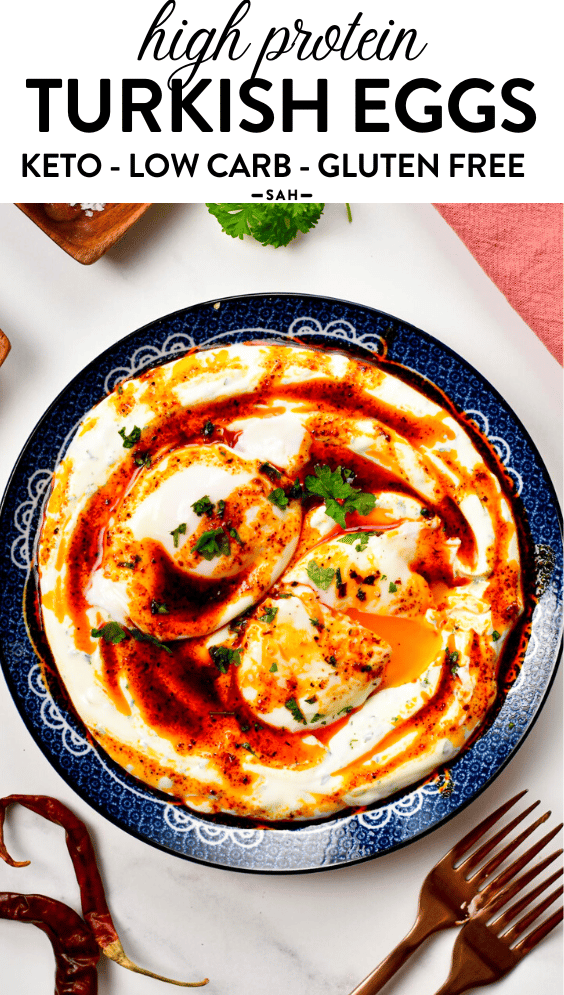
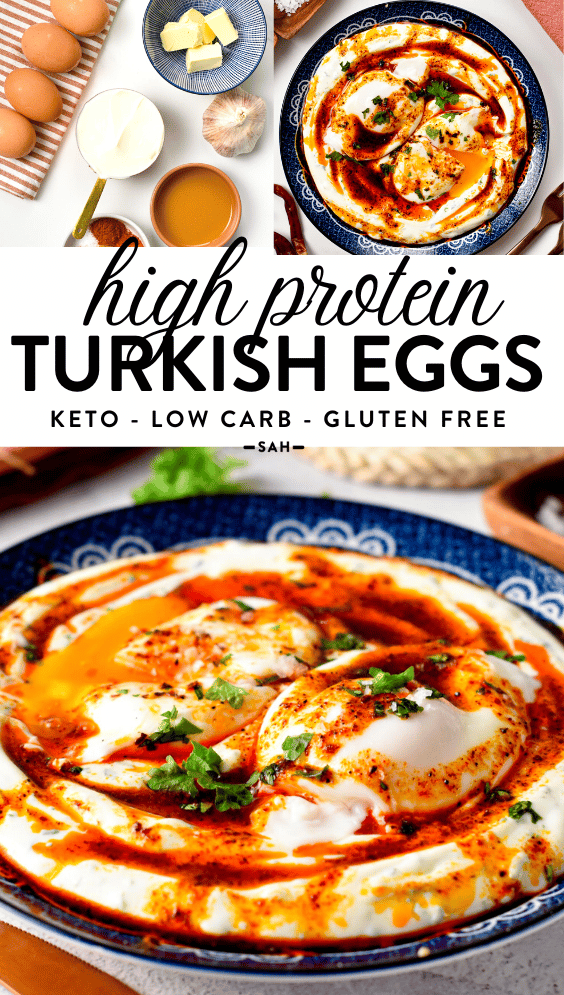



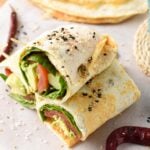
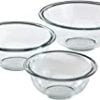
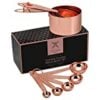


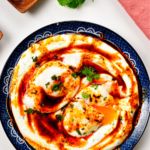
Share this post!
If you enjoyed this post, share it with your close ones!
Leave a comment
Hi, this recipe sounds delicious, and I will be trying it soon. Just one question: why do you strain the egg with a sieve? I’ve never done that when preparing poached eggs. Thnank you!
Yes, just to get some of the loose egg white off them.